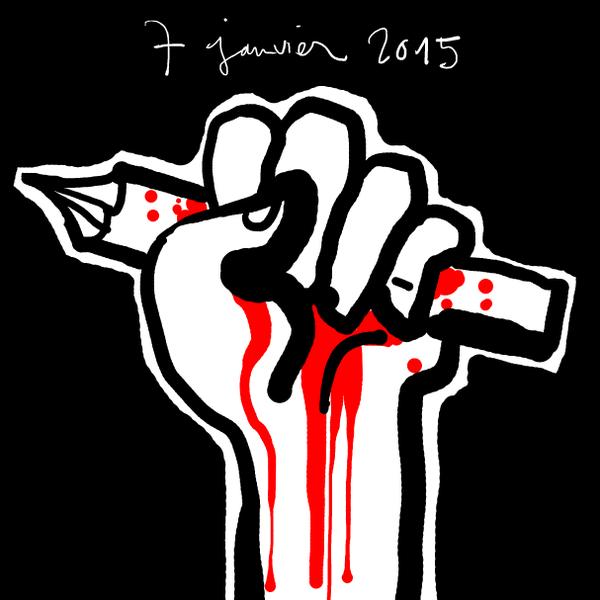Sunday, interior ministers from EU member states, EU Commissioner for Migration and Home Affairs Dimitris Avramopoulos, U.S. Attorney General Eric H. Holder Jr., U.S. Deputy Secretary of Homeland Security Alejandro Mayorkas, the minister of Public Safety of Canada Steven Blaney and European Counter-Terrorism Coordinator Gilles de Kerchove all met in Paris.
Their mission was to come up with a response to the Paris terror attacks.
“We reaffirm our unfailing attachment to the freedom of expression, to human rights, to pluralism, to democracy, to tolerance and to the rule of law: They are the foundation of our democracies and are at the heart of the European Union.”
OK. Thanks…
“We are concerned at the increasingly frequent use of the Internet to fuel hatred and violence and signal our determination to ensure that the Internet is not abused to this end, while safeguarding that it remains, in scrupulous observance of fundamental freedoms, a forum for free expression, in full respect of the law. With this in mind, the partnership of the major Internet providers is essential to create the conditions of a swift reporting of material that aims to incite hatred and terror and the condition of its removing, where appropriate/possible.”
Somehow, all the reassurances about fundamental rights–in this context–makes me a bit uneasy. From working in the European Parliament, I have learned that when something is wrapped up in this kind of language you should be on your guard.
What it all boils down to is to involve Internet service providers more in removing jihadist sites. It seems.
It’s unclear in what way this changes anything from today. If a site is illegal, normally it will be removed. Is the idea to cut out the judicial process from the operation? Or what?
Some of the wordings shows similarities to what has been discussed when it comes to copyright infringements. And in that setting, the purpose has been to make ISPs responsible for policing the net.
So, are they trying to make ISPs responsible for tracking down and censoring jihadist sites?
We don’t know. Yet.
The EU officials will continue their talks at the “informal” Justice and Home Affairs Council (JHA) in Riga on January 29. And it will be on the agenda at the next EU summit. Then, in February all the people from the Paris meeting will come together again, in the U.S..
Be vigilant. Before you know it ISPs might find themselves between a rock and a hard place. In the front line of the War on Terror.
/ HAX
DW: Data sharing, tighter EU outer border, urged at Paris talks »
Joint statement from the Paris meeting (PDF) »

